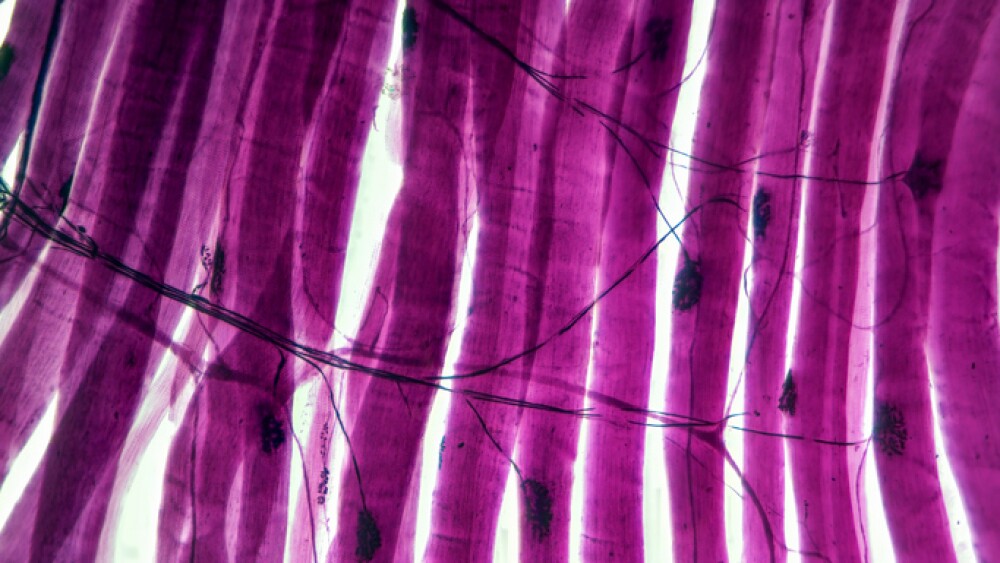Homology Medicines, Inc. (Nasdaq: FIXX), a genetic medicines company, announced today the presentation of preclinical data that support its investigational gene therapy programs for the treatment of metachromatic leukodystrophy (MLD) and phenylketonuria (PKU) at the American Society of Human Genetics (ASHG) 2019 Meeting.
BEDFORD, Mass., Oct. 21, 2019 (GLOBE NEWSWIRE) -- Homology Medicines Inc. (Nasdaq: FIXX), a genetic medicines company, announced today the presentation of preclinical data that support its investigational gene therapy programs for the treatment of metachromatic leukodystrophy (MLD) and phenylketonuria (PKU) at the American Society of Human Genetics (ASHG) 2019 Meeting.
For the first time, Homology presented preclinical data from the murine model and non-human primates that demonstrated that the HMI-202 gene therapy candidate crossed the blood-brain-barrier and the blood-nerve-barrier and increased levels of arylsulfatase a (ARSA) protein to therapeutic levels. In addition, preclinical data on gene therapy candidate HMI-102 showed that a single administration resulted in sustained Phe reduction and increased tyrosine and other important downstream biochemical metabolites in the PKU murine model.
“The MLD presentation is part of a growing foundation of HMI-202 data to support a future IND filing, and the PKU preclinical data supported the initiation of our Phase 1/2 trial, which is ongoing and expected to report initial data by the end of this year,” said Albert Seymour, Ph.D., Chief Scientific Officer of Homology Medicines. “Taken together, these presentations demonstrate the potential of our genetic medicines platform, investigational PKU and MLD gene therapies and our continued focus on advancing these treatments to help patients and their families.”
Highlights from the posters include:
HMI-202 gene therapy in development for MLD
- Single administration of HMI-202 resulted in therapeutic levels of human ARSA enzyme in the murine MLD model.
- HMI-202 modulated disease-relevant biomarkers through 48 weeks (end of study), including LAMP-1, myelin and lymphocyte protein transcript and sulfatides in central nervous system tissue in the murine model.
- Human ARSA protein levels in non-human primates confirmed crossing of the blood-brain-barrier and blood-nerve-barrier.
HMI-102 investigational gene therapy for PKU
- A single administration normalized blood Phe levels in the Pahenu2 murine model, which was sustained for 48 weeks, consistent with the lifespan of the model.
- There was a concomitant increase in downstream biochemical metabolites, including tyrosine, melanin and 5-HIAA, indicating that the metabolic pathway had been restored.
- Liver vector genomes were stable over time, and weight-based dosing from the murine model to the non-human primate model was confirmed.
- There were no adverse findings observed in a toxicology study in the murine model to the highest dose tested.
This poster received a Reviewers’ Choice Abstract award during the ASHG Meeting.
A 5-year retrospective study of individuals with PKU treated at two specialized U.S. clinics
- Phe concentrations in patients with classical PKU remained above the therapeutic threshold under current standard of care, which includes life-long dietary protein restriction.
- There is an unmet medical need for therapies to control blood Phe in patients with PKU.
For more information, please visit www.homologymedicines.com/publications.
About Phenylketonuria (PKU)
PKU is a rare, inherited inborn error of metabolism caused by mutations in the PAH gene. The current standard of care is a highly restrictive diet, but it is not always effective, and there are currently no treatments available that address the genetic defect in PKU. If left untreated, PKU can result in progressive and severe neurological impairment. PKU affects approximately 16,500 people in the U.S., and an estimated 350 newborns are diagnosed each year.
About Metachromatic Leukodystrophy (MLD)
MLD is a rare lysosomal storage disorder caused by mutations in the ARSA gene. ARSA is responsible for the creation of the arylsulfatase A (ARSA) protein, which is required for the breakdown of cellular components. In MLD, these cellular components accumulate and destroy myelin-producing cells in the peripheral and central nervous system leading to progressive and serious neurological deterioration. The late infantile form of the disorder is estimated to affect 1 in 40,000 people, and it is fatal within five to ten years after onset.
About Homology Medicines, Inc.
Homology Medicines, Inc. is a genetic medicines company dedicated to transforming the lives of patients suffering from rare genetic diseases with significant unmet medical needs by curing the underlying cause of the disease. Homology’s proprietary platform is designed to utilize its human hematopoietic stem cell-derived adeno-associated virus vectors (AAVHSCs) to precisely and efficiently deliver genetic medicines in vivo either through a gene therapy or nuclease-free gene editing modality across a broad range of genetic disorders. Homology has a management team with a successful track record of discovering, developing and commercializing therapeutics with a particular focus on rare diseases, and intellectual property covering its suite of 15 AAVHSCs. Homology believes that its compelling preclinical data, scientific expertise, product development strategy, manufacturing capabilities and intellectual property position it as a leader in the development of genetic medicines. For more information, please visit www.homologymedicines.com.
Forward-Looking Statements
This press release contains forward-looking statements within the meaning of the Private Securities Litigation Reform Act of 1995. All statements contained in this press release that do not relate to matters of historical fact should be considered forward-looking statements, including without limitation statements regarding our expectations surrounding the potential, safety, efficacy, and regulatory and clinical progress of our product candidates; plans and timing for the release of clinical data; our beliefs regarding our manufacturing capabilities; the potential of and related advancement of our novel platform and pipeline; our goal of delivering potential cures to patients; beliefs about preclinical data; our position as a leader in the development of genetic medicines; and the sufficiency of our cash, cash equivalents and short-term investments. These statements are neither promises nor guarantees, but involve known and unknown risks, uncertainties and other important factors that may cause our actual results, performance or achievements to be materially different from any future results, performance or achievements expressed or implied by the forward-looking statements, including, but not limited to, the following: we have and expect to continue to incur significant losses; our need for additional funding, which may not be available; failure to identify additional product candidates and develop or commercialize marketable products; the early stage of our development efforts; potential unforeseen events during clinical trials could cause delays or other adverse consequences; risks relating to the capabilities and potential expansion of our manufacturing facility; risks relating to the regulatory approval process; our product candidates may cause serious adverse side effects; inability to maintain our collaborations, or the failure of these collaborations; our reliance on third parties; failure to obtain U.S. or international marketing approval; ongoing regulatory obligations; effects of significant competition; unfavorable pricing regulations, third-party reimbursement practices or healthcare reform initiatives; product liability lawsuits; failure to attract, retain and motivate qualified personnel; the possibility of system failures or security breaches; risks relating to intellectual property and significant costs as a result of operating as a public company. These and other important factors discussed under the caption “Risk Factors” in our Quarterly Report on Form 10-Q for the quarter ended June 30, 2019 and our other filings with the SEC could cause actual results to differ materially from those indicated by the forward-looking statements made in this press release. Any such forward-looking statements represent management’s estimates as of the date of this press release. While we may elect to update such forward-looking statements at some point in the future, we disclaim any obligation to do so, even if subsequent events cause our views to change.
| Investor Contact: |
| Theresa McNeely |
| SVP, Corporate Communications |
| and Patient Advocacy |
| tmcneely@homologymedicines.com |
| 781-301-7277 |
| Media Contact: |
| Cara Mayfield |
| Senior Director, Patient Advocacy |
| and Corporate Communications |
| cmayfield@homologymedicines.com |
| 781-691-3510 |




